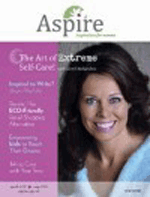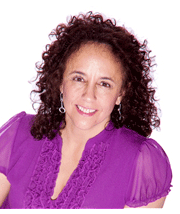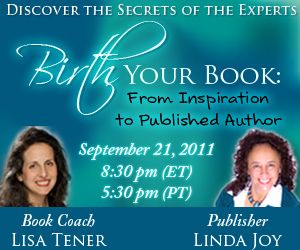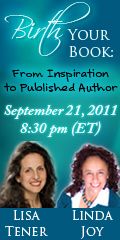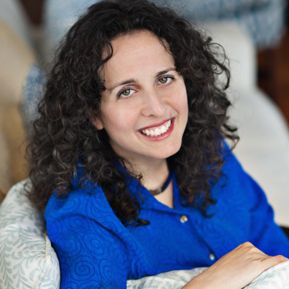 Last week I had planned a teleseminar to answer your book writing and publishing questions, but got hit by a nasty flu.
Last week I had planned a teleseminar to answer your book writing and publishing questions, but got hit by a nasty flu.
While recovering, I didn’t want to make you wait any longer for answers to your questions, so we’re turning the call into a blog post!
Many readers already sent in excellent questions during my free book writing teleseminar and I will start by answering those. If you don’t see your question here, please ask as a comment at the bottom of this post and I promise to answer.
Writing a Non-Fiction Book: Self-help and How-to
Rose asked, “What is the first step?”
Rose, I always have my authors start by clarifying their vision and goals for the book, particularly with how-to and self-help books.

Shari asked, “How to stay focused, streamlining the information with examples?”
Shari, I suggest you work from a detailed outline. That will help you stay focused. Perhaps try adding the examples later so that first you get the flow of the book and then you can decide where examples would fit well and help you illustrate your points.
Barbara asked, “How to create content that is informative but also entertaining so you can attract and maintain readers’ interest?”
Knowing that Barbara’s book is about health, I would suggest a few things:
- Make it conversational. Pretend you are writing a letter to one specific person. Imagine that person and write to him/her. Your writing will naturally be more conversational.
- Put the super-technical stuff in sidebars. Some readers get overwhelmed or lost with the nitty-gritty. By putting it in sidebars, you give them permission to skip parts that certain other readers will require.
- Add stories: If appropriate to your book, add some anecdotes with quirky details and “color.” We learn from stories.
- Add other features such as cartoons, charts, graphs, images/icons, etc. that help break things up visually and intellectually.
- Use playful section headlines, chapter titles and feature names. Alliteration or a play on words can work well.
- Ask your inner muse! This is one of my favorite exercises for being creative or getting clarity about direction.
Leslie asked, “How should I best include my personal stories in my nonfiction book?”
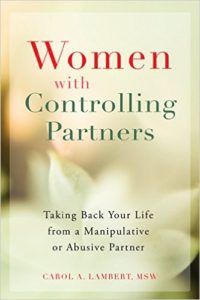
Leslie, it sounds like you are talking about a self-help or how-to book and stories will make it come alive. As I mentioned to Shari, start with a detailed outline and go from there. You may want to first write the informational parts and then decide which stories will illustrate those best. I often have clients work with color coded index cards in a systematized way to come up with structure and organize anecdotes.
Revision, Editing, Accountability and Getting an Agent
Dawn says that she has been working with an editor and now needs to make revisions but that now the loose ends are swimming in her head. She wonders if she should look for an agent to help her get clarity, accountability, a plan of action and ongoing support. And, “Is this even realistic? How can I get one while still working on the manuscript?”
Wow, great questions, Dawn. First, I wonder if you need an editor who is more of a writing coach, so that you can get the planning support and accountability you need. Some editors offer more support while others will merely send you their revisions and feedback.
Knowing you need more than that, I would suggest you find that in an editor/writing coach or look for a supportive program.
Many people like my Bring Your Book to Life® Program for the structure, plan, accountability, support, community and one on one feedback from me. If that’s not workable for you however, see if you can find a more modest course or program that would fill your needs.
Will an agent offer the kind of accountability and support you are looking for? There are all kinds of agents and some are certainly more hands on than others. Most agents are not going to be looking for an author who needs lots of handholding to get revisions done, though.
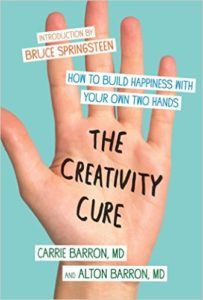
In addition, you ask whether finding an agent is realistic if you have not completed the book/revisions. YES! It certainly can be. You need a book proposal. Is that the right step for you? In this post, I answer the question, “Should I write a book proposal?”
In this post, I cover the steps for How to Write a Book Proposal.
First, you would complete and polish the proposal and have it all ready to go. Then you’d send a query letter to the agent to ask if they want to see the proposal. An unsolicited proposal ends up in the slush pile, so do not send without asking.
In terms of how realistic is it, though, agents are looking for fresh ideas for a large and hungry audience and an author with a significant platform (following, online reach, etc.). See the above mentioned article on whether to write a book proposal for more details.
Rita asked, “How do I decide on a title when there are so many topics covered in the book?”
Rita, it sounds like you may have more than one book there! You should be able to describe your book in one phrase or theme. Answer the question: What is my book about? and answer it as briefly as possible. If you can’t, it will be hard to attract readers.
As to title, if you are in the midst of writing, look at your chapters and find a coherent theme. Your title or subtitle should capture that theme and the reason readers would want to read this book. If you are just starting, I would suggest with clarifying your vision and goals and creating a vision statement. Without that, you’re more likely to meander.
My self-study program, Quick Start to Kick Start Your Book can help you get started writing a self-help or how-to book step-by-step. It includes exercises for determining your vision and goals, writing a vision statement, clarifying who your readers are and much more.
Parris asked, “How do I know when my editor thinks of me as her cash cow?”
Yikes. There are two possibilities here. 1. Your editor has not been communicating as well as he or she should about the level of developmental editing and copy editing needed. or 2. You already know the answer or you wouldn’t be asking. This editor is taking advantage of you.
So, which is it? Sometimes editors assume you understand that it takes more than one edit to make a book strong. Most of the best books have probably gone through many revisions. Now that you know this, ask your editor to clearly communicate to you how many more edits he or she thinks it needs and what that cost will be.
If you feel a strong knot in your stomach, however, or just a sense you are being taken advantage of, trust your gut.
Questions About Writing a Memoir
Elaine said, “I need a dramatic opening and cannot come up with it yet.”
A dramatic opening is a good instinct. Make a list of all the high-tension points in your story. What might draw people in? Or perhaps the perfect opening hasn’t happened yet.
Don’t wait. Start writing in the middle and come back to the beginning to see what clarity comes when you near the end of the book. You can also try my free “Meet Your Muse” exercise and ask your muse.
[bctt tweet=”Self-Publishing Pros and Cons ” username=”LisaTener”]

Carol asked, “Would you self publish or look for a publisher, and why for each?” Ann Patty also asked how to decide whether to self publish or “try to get a book contract.”
My recent article, “Should I Write a Book Proposal? 7 Questions to Ask for Clarity” can take you through the questions to ask. It also walks you through pros and cons through these questions.
Bridget asked for the pros and cons of self-publishing with a larger company. Here are the things to be careful of with any self-publishing company, no matter the size:
a) No matter what they say, the majority compete on price, not quality. And they usually contract out for editing, proofreading and design. If you get a quality editor or proofreader you are extremely lucky. It’s uncommon. Usually, there are many errors.
b) Don’t expect to get much PR. Most self-publishing companies make it sound like they will do a great deal to publicize your book, such as sending out a press release. That press release is usually guaranteed to do nothing. Nada. You’re likely best off hiring your own quality editor, designer, publicist, book launch manager, etc.
Are there exceptions to the rule? Yes. I recently met a new author, Sandra Coletta, author of The Owl Approach to Storytelling. The book cover was gorgeous and she gushed about her publisher, Motivational Press. I peeked inside and again was impressed by the professionalism of the inner design. I do know Sandy hired her own independent editor, a move I recommend.
I also know that Inspired Living Publishing offers publishing packages to authors and Linda Joy does an impressive job of getting her authors on Amazon bestseller lists.
So, can you find self-publishing companies that do an excellent job. How? First, I suggest you Google “Reviews [Company Name] ” and see if you can find independent reviews for the company. Also, find some authors who used that company and ask them what they liked and what they wished they could change, or any advice they have in working with that publisher. Would they hire them again?
Permissions
Amber asked, “Are there certain permissions that need to be obtained to discuss specific people, names, places and things. For instance, if I am referring to social media, can I say “Facebook”?
Yes, you can refer to Facebook or the name of a company. However, sometimes a brand requires a trademark sign next to it, which can look pretty goofy in a novel, but fine in a nonfiction book.
If you are referring to people, you may want to give them a heads up, as a relationship builder. Can you be sued for saying something about a person? There are instances where, say, an ex-spouse sues for defamation of character. When in doubt, consult an attorney.
Note, the term “permissions” tends to be used for permission to reprint lyrics or a longer excerpt. Often, a payment is made to get the permission.
Book Sales

Hugh asked, “Do wannabe authors often have an inflated concept of how much money a published author might receive? What is the realistic way to think about the cost of producing one’s book versus the return it is likely to bring back?”
Hugh, these are excellent questions and ones I try to address with all my clients. If you are investing in your book for editing, publishing, marketing, etc. you may not actually get all that money back in book sales. Books are not an expensive, high margin item.
That’s why I encourage authors to have a business plan for their books.
Consider what activities you can do that will bring in money. For example, teaching online courses related to your book’s subject can help sell more books while bringing in income, rather than costing money, AND book sales can also support course enrollment, further increasing income and the impact of your message.
Pen Name
Golde asked, “What is involved with using a pen name and does a publisher help with that decision?”
Golde, you can just use a pen name. However, nowadays that is less common because it can hinder reaching readers. Social media is one of the best ways to reach readers, but if you are using a pen name, you can’t really be on Facebook or LinkedIn anonymously. And you’ll need a whole new and separate Twitter identity.
Okay, there were more questions, but I’m going to need to sign off for now. Just add your question as a comment below and I promise to answer!
And, if you have questions about my upcoming Bring Your Book to Life® Program, there are a handful of seats left, feel free to ask about that as well.

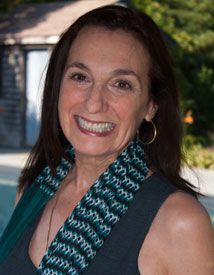
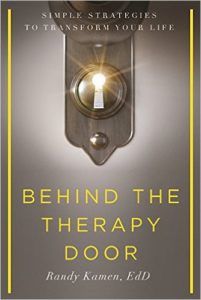 Lisa: Did you feel a sense of urgency in writing your book, Behind the Therapy Door? If so, what drove that urgency?
Lisa: Did you feel a sense of urgency in writing your book, Behind the Therapy Door? If so, what drove that urgency?

 Randy: The summit is an awesome collection of women and men coming together to talk about the research and cutting edge strategies for making the most out of these precious years—rather than letting them slip away. This summit will help people take more responsibility in how they choose to lead the coming years and hopefully live with greater sense of purpose.
Randy: The summit is an awesome collection of women and men coming together to talk about the research and cutting edge strategies for making the most out of these precious years—rather than letting them slip away. This summit will help people take more responsibility in how they choose to lead the coming years and hopefully live with greater sense of purpose.

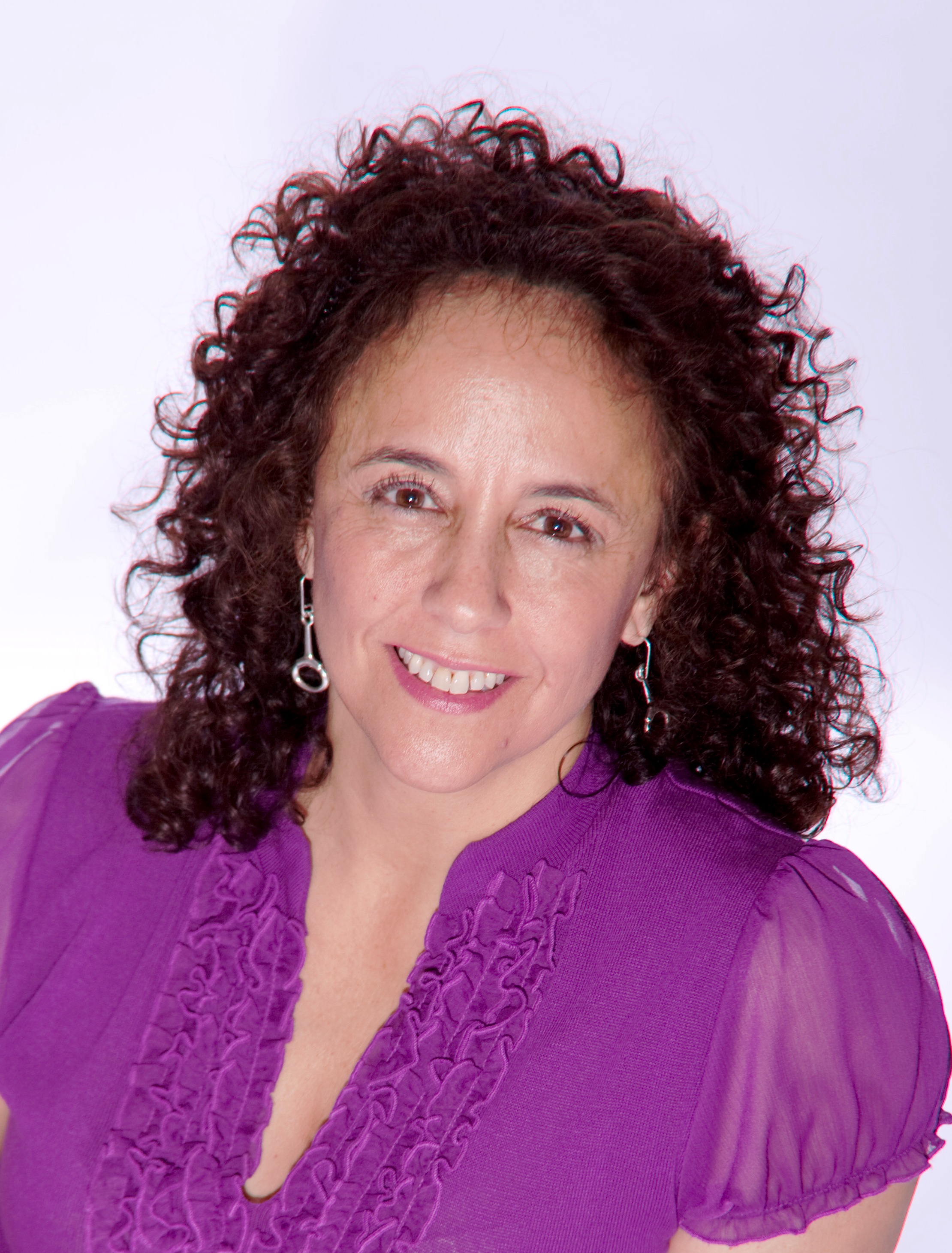
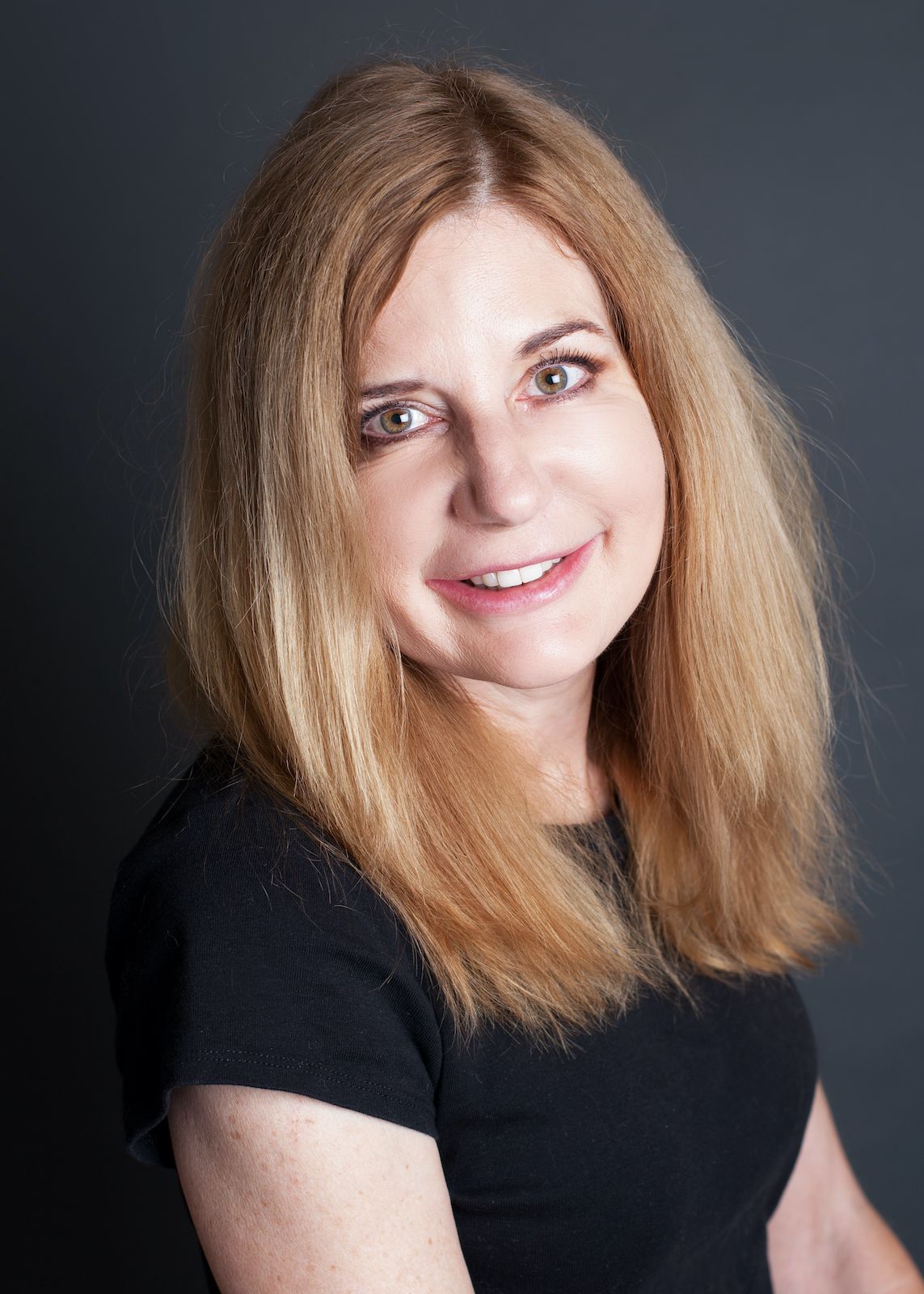 Julia Griffin
Julia Griffin Jeanna Gabellini
Jeanna Gabellini
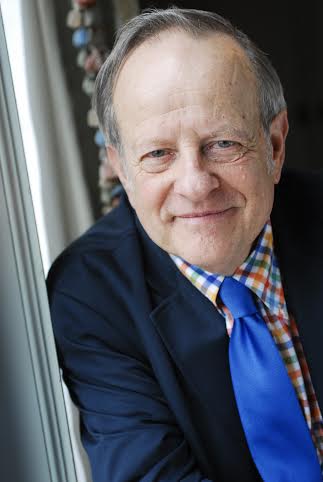 Michael Larsen
Michael Larsen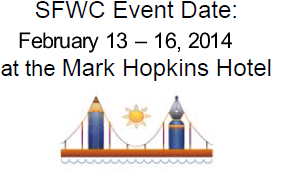 So, can you guess where I’m going with this? What better way to be in community than to attend a truly fabulous writers conference? Well, lucky you, there’s still space at the
So, can you guess where I’m going with this? What better way to be in community than to attend a truly fabulous writers conference? Well, lucky you, there’s still space at the 


